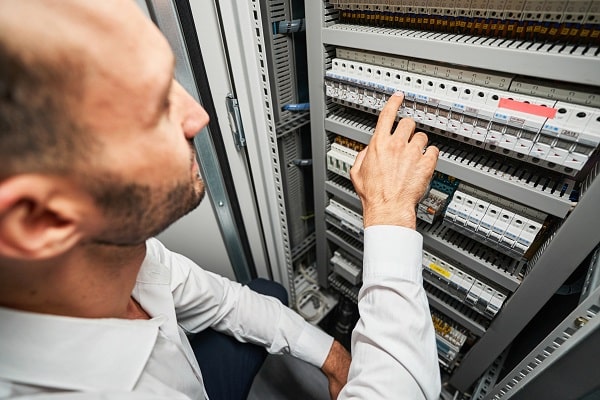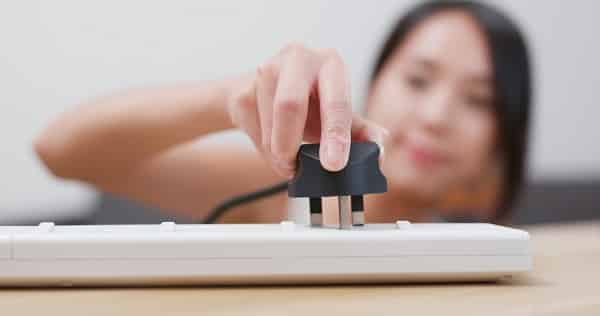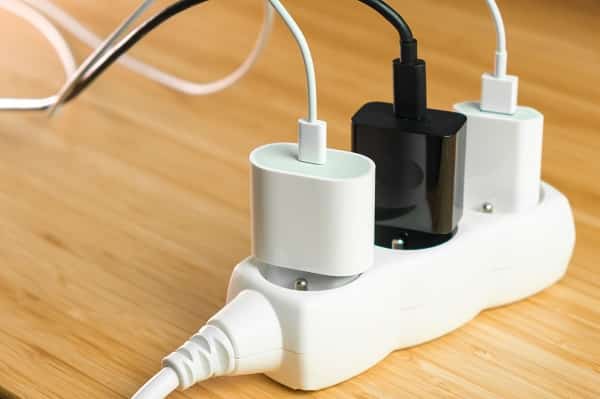Everyone relies on electricity to power their homes and make their lives easier, but it’s important to remember that great power comes with great responsibility. Electricity can be dangerous if not used correctly, so it’s essential to be aware of the different steps you should take when you come in contact with it. So don’t let a simple mistake lead to a potentially life-threatening accident – keep reading to learn more! This post will discuss some of the most important safety tips for using electricity in your home to help you avoid getting shocked.
The Dangers Of Electricity In Your Home
While electricity is an essential part of modern life, it can also be dangerous if not used properly. Every year, many accidents and fires are from electrical faults in the home. To stay safe, it is important to understand the dangers of electricity and take steps to reduce the risks. One of the most common dangers is electrical shock, which can happen if you touch a live wire or come into contact with an electrical appliance that is not properly grounded. Shock can cause burns, muscle spasms, and even heart failure. In severe cases, it can be fatal. Another danger is electrical fires. These can be faulty wiring, overloaded circuits, or overheating household appliances. Electrical fires can spread quickly and be difficult to control, so it is vital to be aware of the signs of a fire hazard and take action to prevent it. By understanding the dangers of electricity, you can help keep your home safe from accidents and fires. And although taking some precautions might seem like a hassle, they pale in comparison to the potential consequences of not being careful.
Turn Off The Power Before Dealing With Wires

Dealing with electrical wiring can be dangerous if you’re not careful. When working with wires, you must ensure that you turn off the power before you begin, which will help prevent accidents or injuries. Even if you’re moving a wire from one place to another, it’s still essential to shut off the power. Otherwise, you risk being electrocuted or causing a fire. You’ll need to find your home’s circuit breaker to turn off the power, usually in the basement or garage. Once you’ve found it, switch off the power to the room where you’ll be working. If you’re not sure which switch controls the power, it’s always better to err on the side of caution and turn off all of the switches.
Have Ground Fault Circuit Interrupters Installed

Ground fault circuit interrupters, or GFCIs, are devices that help to prevent you from getting shocked. They work by sensing when current is flowing through a circuit and immediately shutting off the power if there is an imbalance, which can occur if someone comes into contact with a live wire or if a wire becomes frayed and begins to leak electricity. GFCIs can be installed in both homes and buildings and are typically required in areas with a risk of water contact. While they may seem like a simple safety measure, GFCIs are highly effective in preventing electrocutions. The Consumer Product Safety Commission estimates that they save many lives every year. As a result, it is vital to ensure that your home has GFCIs installed in any potentially hazardous areas.
Don’t Run Cords Under Carpets

Electrical cords are a necessary part of modern life but can also be dangerous fire hazards. When cords are run under carpets, they can become overheated, causing the carpet to catch fire. In addition, cords that are hidden under carpets can be easily damaged, creating a risk of shock or electrocution. It is essential to keep electrical cords in good condition and to avoid running them under carpets to help prevent accidents. When cords must be routed through high-traffic areas, it is best to use cord covers or tape them down securely. Taking these simple precautions can help keep your home safe from these fire and electrical hazards.
Replace Any Frayed Cords

All too often, people take the cords and wires in their homes for granted. They are always there, connecting your devices and appliances to the power supply. However, over time, exposure to heat, cold, and moisture can cause the cords to deteriorate, leaving them frayed and unsafe. If you have any home cords showing signs of wear and tear, it is crucial to replace them as soon as possible. As with keeping cords under carpets, frayed cords pose a fire hazard and can lead to electric shocks. When replacing a cord, match the gauge and voltage rating to the old one, ensuring that the new cord can handle the same current as the old one.
Avoid Overloading Your Sockets

If you were ever scolded as a child for overloading a socket in your home, you might have wondered why it’s such a big deal. After all, what’s the harm in plugging in a few extra appliances? As it turns out, several good reasons exist to avoid overloading sockets. For one thing, it can cause a fire hazard. The circuit can overload and overheat when too many appliances are in one socket, leading to sparks and flames spreading throughout your home. Additionally, overloading sockets can damage your electrical system and shorten the life of your appliances. So next time you want to plug in one too many devices, take a moment to consider the consequences. It’s simply not worth the risk.
Use Power Strips With A Surge Protector

Homes are filled with sensitive electronics vulnerable to power surges in today’s world. A power surge is a sudden spike in electrical voltage that can damage or destroy electrical components. While most power surges are from faulty wiring or lightning strikes, they can also occur when large appliances are turned on or off. You should use a power strip with a surge protector to protect your electronics from power surges. Surge protectors work by absorbing the excess voltage and redirecting it to the ground, preventing it from damaging your electronics. These strips also help prevent overloading sockets, providing additional outlets for your devices and reducing fire risk. When choosing a power strip, look for one with a built-in surge protector and enough outlets to accommodate all of your devices.
Follow These Safety Tips For The Electricity In Your Home!
By following these simple safety tips, you can help to keep your home safe from electrical hazards. While you can prevent most electrical accidents, it is always important to be aware of the risks. If you have any concerns about the safety of your electrical system, be sure to contact a licensed electrician. They will be able to inspect your home and make any necessary repairs. Remember, safety is always the top priority when it comes to electricity.